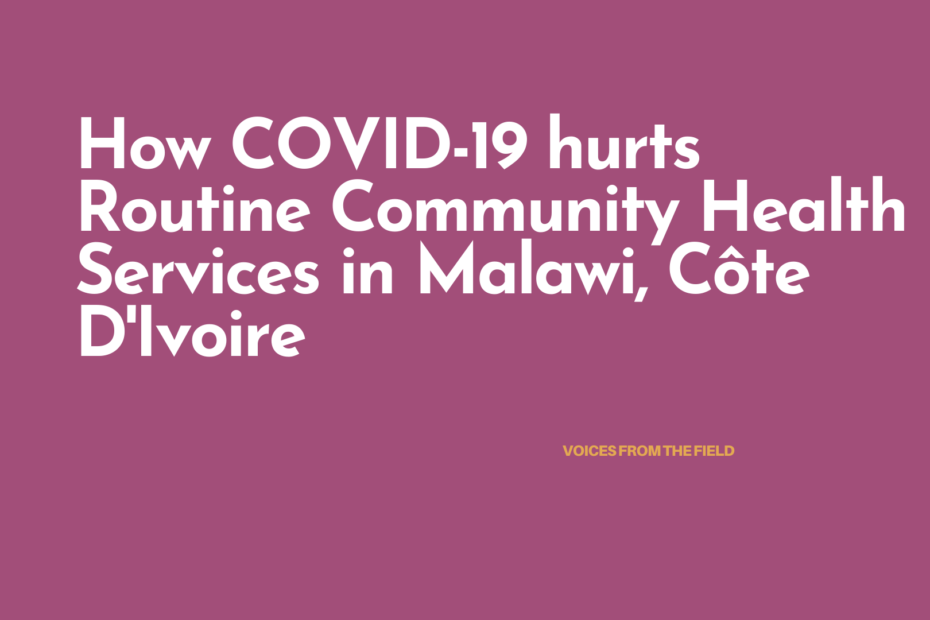
The Situation in Malawi
The predicted impact of the COVID-19 crisis on African health systems did not come to pass—hospitalization and mortality remain low but the pandemic took away lifesaving treatment and routine care. The lack of personal protective equipment (PPE) in Malawi, and Côte D’Ivoire shut down community health services. Citizens already dealing with multiple barriers to healthcare had nowhere to go. COVID-19 Action Fund for Africa (CAF-Africa) country partners share the impact of the pandemic on community health workers (CHWs) and the citizens they serve to highlight the urgent need to safeguard CHWs. From malaria to adolescent and reproductive health services, CHWs are a lifeline.
Both PPEs and IPC equipment were not there as well as the skills on how to manage or how to use them. The government also didn’t have the mechanism to determine how much equipment should go to all the facilities across the country. So the quantification of PPEs and IPC materials needed was not there, then they didn’t even have the system to get the feedback on what exactly is needed and at what point in time is actually needed. We saw the cancellation of some of the CHW services because people had all the negative information about COVID and because the equipment was not there, clinics were also canceled. I went to one of the districts in the country in further north. They had scheduled days for immunization, scheduled days for clinics, outreach clinics, allocated people to conduct those clinics. And when the pandemic hit, the clinics were canceled meaning that the immunization booked for the kids didn’t take place. People who needed a doctor walked more than 11, 15, 20 kilometers to get service but would get there to find out that the doctors are not there. Even though they are there they will be told that the clinic session is going to happen in the following month, they would actually find it difficult to walk another 20 kilometers to get the same information. So as a result, children didn’t get their immunization. And some of the people who had a chronic illness, couldn’t get their medication right on time. And the repercussions are huge when such things happen.
Mathew Ziba, Senior Supply Chain Program Manager, VillageReach, Malawi
COVID-19 on Maternal Health in Côte D’Ivoire
We are registering tremendous maternal and child deaths that are not accounted for because COVID—19 dominates the media and Government agenda. COVID-19 is not our only problem, we have more deadly diseases than COVID-19. For example, malaria, diarrhea, and maternal and child deaths are happening in every corner of the country. With COVID-19 these deaths are even worse because people now fear visiting health facilities because they are afraid of getting exposed to COVID-19. Community health workers are not protected enough to move around comfortably to do their jobs without the fear of being exposed or being themselves the ones to contaminate the entire village. So we are faced with two big questions. One is, how do we keep services running? COVID is one thing, but also we have a plethora of diseases and conditions that also are taking lives at a really alarming rate.
CAF-Africa is working with partners across 20 African countries to ensure that community health workers are prioritized during the COVID-19 crisis. Without the minimum PPE, CHWs, and the services they provide are at risk. While African countries seem to have missed the worst of the COVID-19 crisis the collateral damage to African health systems is the loss of essential health services at the last mile.
Christian Rusangwa, Director of Technical Assistance, Muso